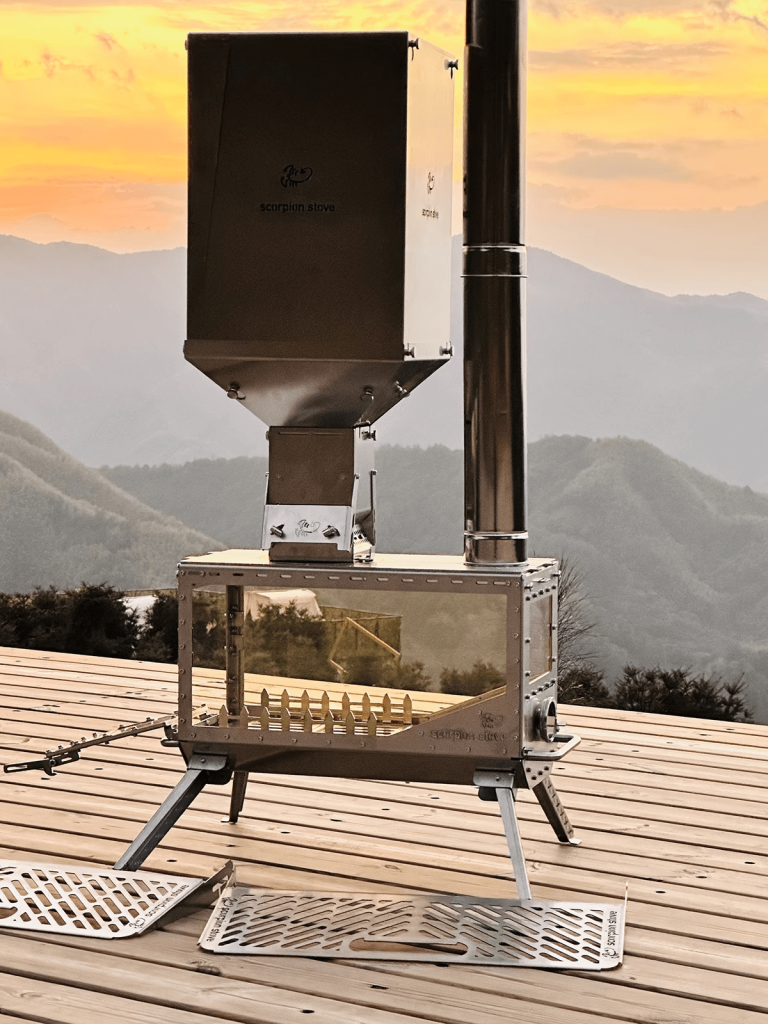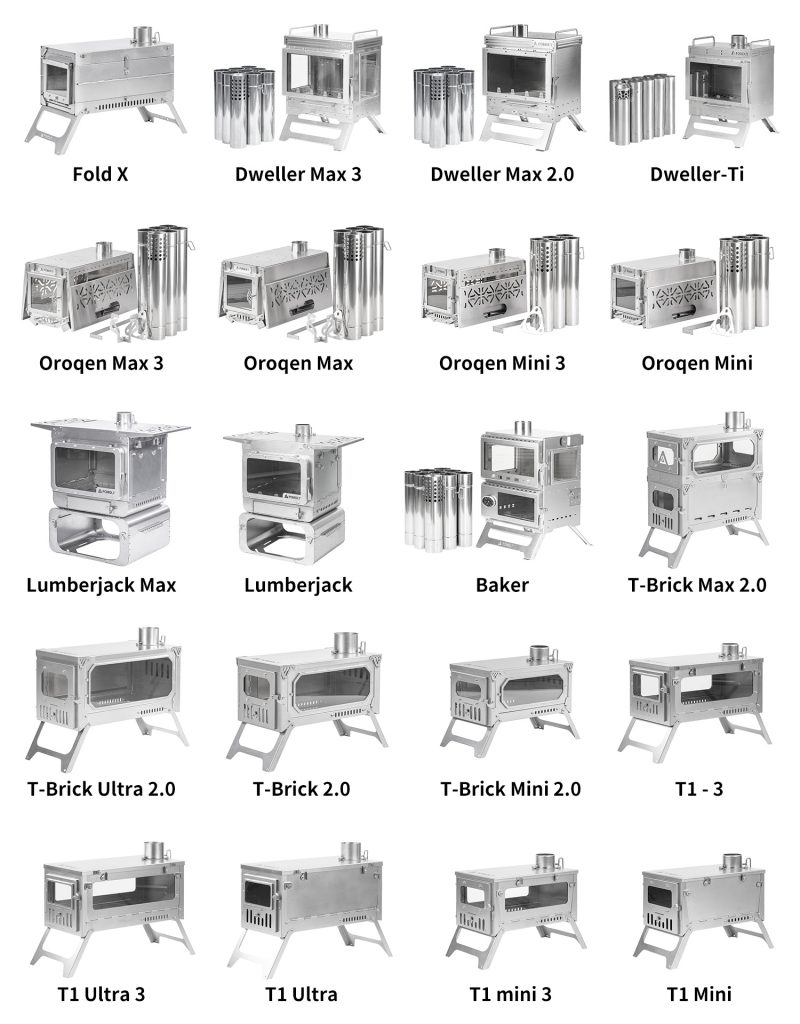Camping Stoves of the Future: Portable Pellet Stoves or Traditional Wood Stoves?
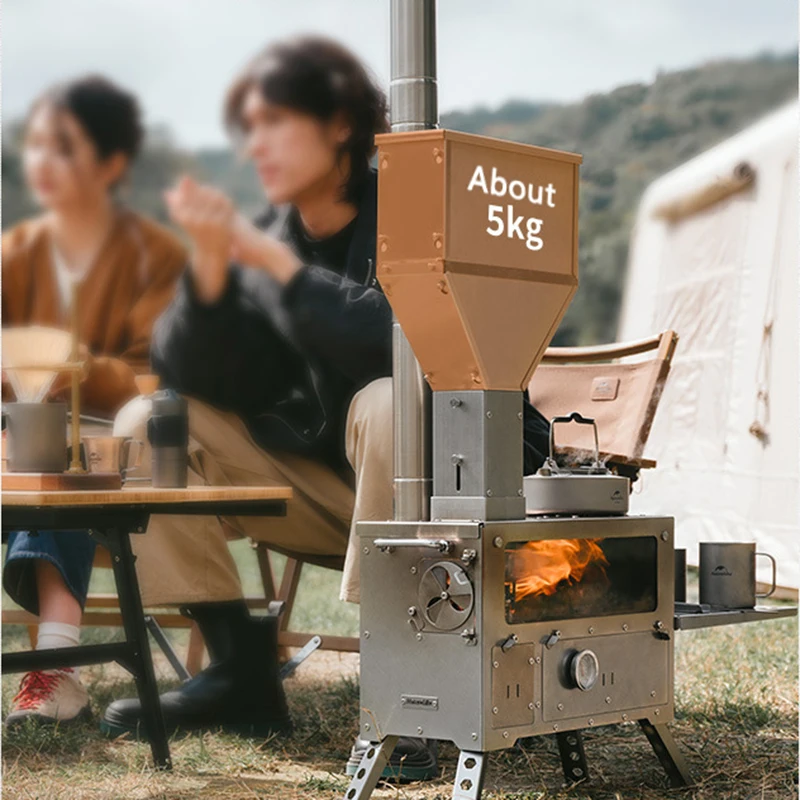
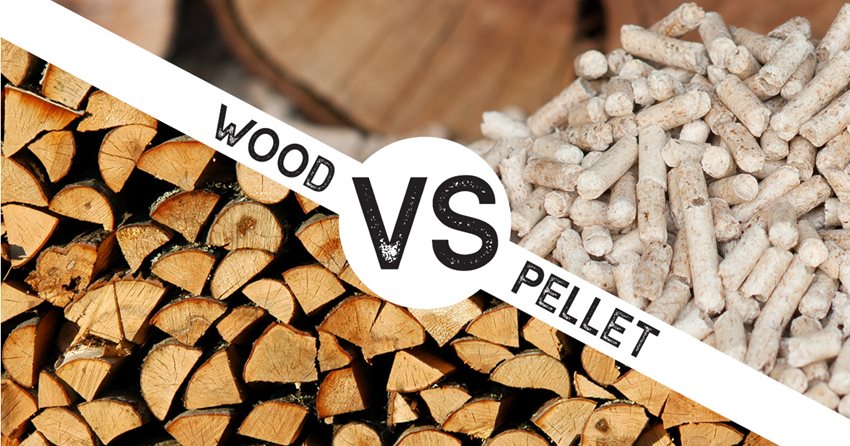
When it comes to selecting the perfect camping stove, outdoor enthusiasts face a crucial decision between two popular options: portable pellet stoves and traditional wood stoves. Both have their merits, and choosing the right one depends on various factors such as convenience, efficiency, environmental impact, and personal preferences. In this article, we will explore the key aspects of these camping stoves of the future to help you make an informed decision.
I. Convenience and Ease of Use:
In terms of convenience, portable pellet stoves take the lead. These innovative stoves utilize compressed wood pellets as fuel, which are automatically fed into the stove, providing a consistent heat output. This automated process eliminates the need for manually adding and managing firewood, making pellet stoves a hassle-free option for campers. On the other hand, traditional wood stoves require the manual addition of firewood and the diligent management of the fire, which can be labor-intensive and time-consuming.
II. Efficiency and Environmental Impact:
When it comes to efficiency and environmental impact, pellet stoves have a clear advantage. These stoves are designed to burn wood pellets efficiently, resulting in minimal waste. The pellets are tightly compressed, ensuring a controlled burn and maximizing heat output. Additionally, pellet stoves often have higher energy efficiency ratings, allowing you to get the most out of your fuel. Furthermore, pellet stoves produce fewer emissions compared to traditional wood stoves, making them a greener choice for environmentally conscious campers.

Wood-Pellets
III. Fuel Availability and Cost:
Fuel availability and cost are significant factors to consider. Traditional wood stoves rely on firewood, which is generally widely available, especially in rural areas or regions with abundant forest resources. However, firewood requires proper seasoning and storage to ensure optimal burning efficiency. On the other hand, wood pellets used in pellet stoves may have varying availability depending on your location. The cost of wood pellets can fluctuate based on factors such as demand, supply, and transportation costs. It’s essential to evaluate the local market conditions and availability of both fuel options before making a decision.

IV. Heat Output and Heating Capacity:
Both pellet stoves and traditional wood stoves can provide sufficient heat for camping or smaller spaces. However, if you require higher heat output or need to heat larger areas, traditional wood stoves offer more flexibility. They often have larger fireboxes and can accommodate larger logs, allowing for a higher heat output. Pellet stoves, while efficient, may have limitations in terms of heat output, making them more suitable for smaller camping setups.
V. Maintenance and Upkeep:
Maintenance requirements play a crucial role in the longevity and performance of camping stoves. Pellet stoves generally require regular maintenance, including cleaning the burn pot, ash removal, and occasional professional servicing. Wood-burning stoves may require more frequent cleaning of the chimney and regular inspection of the flue system. The specific maintenance needs can vary depending on the models and usage patterns. It’s important to consider the time and effort you are willing to invest in maintaining your camping stove when making a choice.
VI. Personal Preference and Ambiance:
Personal preference and ambiance are subjective factors that can heavily influence the choice between a pellet stove and a wood stove. Traditional wood stoves are often favored for their cozy ambiance, providing the crackling sound and visual appeal of a wood fire. Many campers enjoy the ritual of tending to the fire and the rustic charm it adds to their camping experience. Pellet stoves, while efficient and convenient, may not provide the same sensory experience. Consider your personal preference for ambiance and the overall camping atmosphere you wish to create when making a decision.
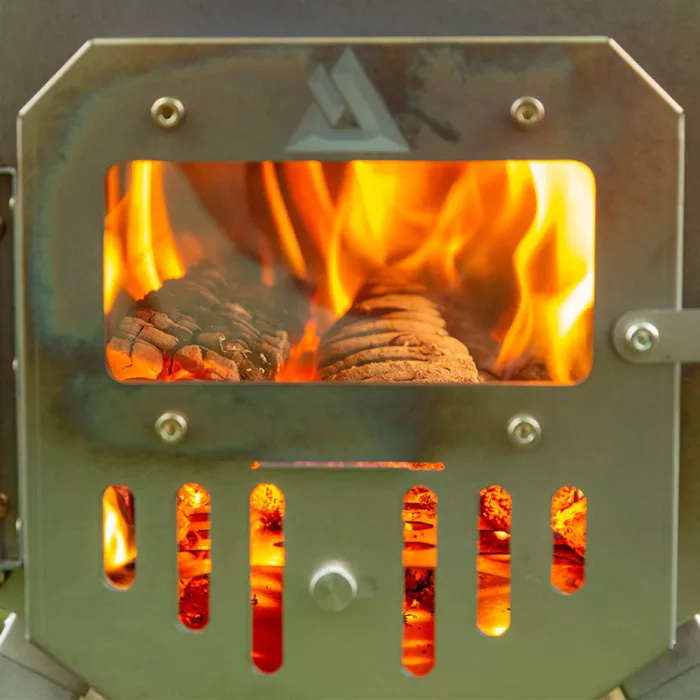
Conclusion:
In the debate between portable pellet stoves and traditional wood stoves, both options have their merits. Portable pellet stoves offer convenience, efficiency, and environmental friendliness, making them an excellent choice for campers seeking a hassle-free experience. Traditional wood stoves, on the other hand, provide a cozy ambiance, greater heat output, and the satisfaction of tending to a wood fire. Ultimately, the decision should be based on your specific needs, priorities, and personal preferences. Consider factors such as convenience, efficiency, fuel availability, heat output, maintenance requirements, and the desired ambiance to find the camping stove that best suits your requirements. Whichever option you choose, both pellet stoves and wood stoves can enhance your camping adventures and provide warmth and comfort in the great outdoors.
